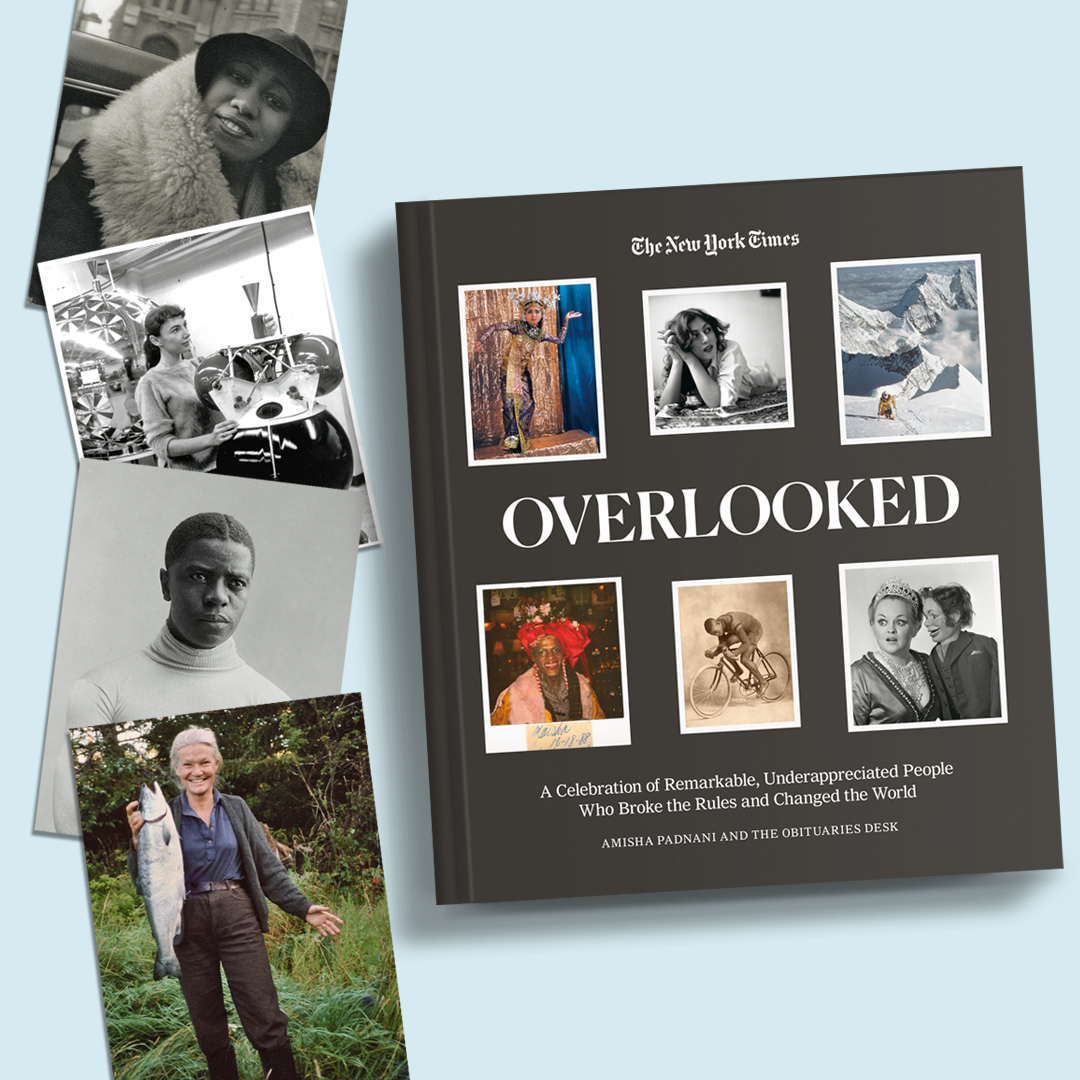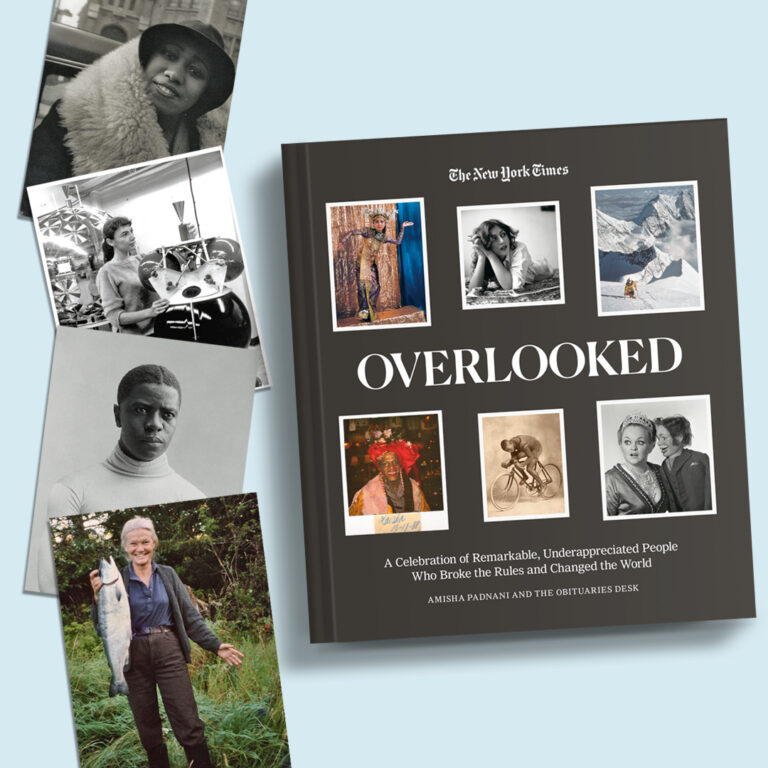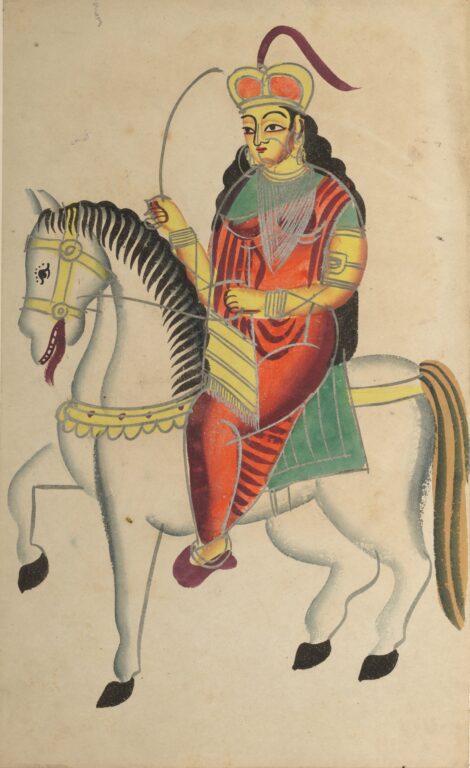
It is 2017. A young South Asian writer, Amisha “Amy” Padnani, has just started a new role at the New York Times, navigating her commute through the hustle and bustle of Times Square. New York City’s liveliness is the antithesis of her role at New York Times — as a writer on the Obituaries team.
Padnani spends her days researching those who have passed away, frequently consulting the archives in the basement of the Times building. Before long, Padnani notices emails from readers who question the lack of women and minority representation in obituaries. As a young woman of color herself, Padnani feels a kindred spirit with these readers, and does more research into her team’s former practices. She begins researching the histories of buried and forgotten lives, and sheds light on them through a series of articles — a project that would soon be known as “Overlooked.”
[Read Related: “Our Stories:” An Introduction to South Asian America’ is a Must-Read for South Asians in the US]
Driven by the lack of representation she saw, Padnani now leads the task force for the “Overlooked” project at The New York Times. Their mission is to discover and publish obituaries for underrepresented personalities, changemakers, and inventors. At first published as part of the Times online, it quickly became bigger than the browser page.
In 2023, Padnani, along with a team of over 60 contributors, published an anthology of 66 obituaries, 24 of which were never published before. The book is titled after the project itself, “Overlooked.”
Through this research, Padnani illuminates household names that did not receive recognition through a New York Times obituary, including journalist Ida B. Wells, computer visionary Alan Turing, blues musician Robert Johnson, and post-war poet Sylvia Plath.
“It was kind of a personal project in a way because as the daughter of Indian immigrants, you know, a woman of color myself, I want to see myself represented in our pages.”

Reflections
Upon receiving the anthology, I feel that it makes the perfect coffee table book, pulling together my living room in a deep way. A quick skim, and you can see the book is split into creatively titled sections like “Paddling Their Own Canoes,” “Creating Art That Endures,” and “Facing the Fight,” that help connect distinguished figures to one another, surmounting appreciation within the reader. The individual voices of the contributors shine through within each obit, and the final product creatively weaves the histories together to leave the reader in awe of all the feats that humankind is capable of.
From Annie Taylor, the first and oldest person to tumble down the Niagara Falls in a barrel and survive, to the “Mother of the Blues,” Ma Rainey, a pivotal figure in the LGBTQ and Southern blues community, “Overlooked” is a book to pick up when life feels too defined. The past lives of these historical figures is a constant reminder that we are writing our own history with each passing day.
Projects such as “Overlooked” have contributed to a wave of public acknowledgement and appreciation of the trailblazers whose histories should not be forgotten. New York has now erected statues in honor of influential women, such as Elizabeth Jennings, to acknowledge the gender gap in public art. Netflix has highlighted important figures like Ma Rainey through an exemplary drama musical.
South Asian Trailblazers
“Overlooked” also highlights revered South Asian individuals, some of which include Madhubala and Jhansi ki Rani. Madhubala was a gem of the Bollywood industry; she is known for her uninhibited personality, her gentle smile, and “mischievous laughter.” An overnight superstar at the age of 16 for the success of the movie, “Mahal,” Madhubala was often portrayed as the young Indian woman testing the limits of tradition. Born with ventricular septal defect, death came to her at the young age of 36. However, her impact on cinema, during a time when the modern Indian woman was emerging as a concept, will reverberate through history for years to come.
Jhansi ki Rani is an Indian historical figure known for defending her land as a queen. She is also considered one of India’s first freedom fighters. The writer of the obituary, Alisha Haridasani Gupta, had a personal desire to write about Queen Laxmibai.
“As a kid, I had a very short temper. I would stew in my anger. At one point, my uncle said to me: ‘Why are you so angry? You are no Rani of Jhansi; no one is taking your kingdom.’”
Although Jhansi ki Rani is revered for her anger towards the British and her passion to maintain her home, these traits are often still seen as undesirable for unmarried women in today’s India. However, the narrative can change with time, and we can all dare to be as brave and fearless as the queen who fought for her rights.

Padnani’s Process
Padnani proves how bringing her unique background to “Overlooked” has shaped its goals; a project that was by no means developed from the top down. Padnani acknowledges the importance — from inception to execution — of believing in yourself and your goals.
“You may not have the idea on day one, but eventually it will come to you, and you should feel empowered to speak up and find an advocate who will listen and help you shape that.”
Padnani’s steadfast efforts to bring recognition to previously overlooked people within the New York Times and beyond should not be overlooked either. A trailblazing journalist and editor, Padnani’s drive to bring justice to the stories of unacknowledged and underrepresented individuals is a testament to her passion for inclusion and equality. In the coming years, Padnani is excited to write a young adult and children’s adaptation for “Overlooked” to educate the next generation on yesterday’s heroes.
[Read Related: Filmi Nights: A Love Letter to Vintage Bollywood]
By publishing about these overlooked individuals, even years after their deaths, Padnani has been able to pay tribute and honor the legacies of the past — across gender lines, country lines, race lines, and more.
“I think it was just so important for people to leave some legacy; leave some record of their legacy behind.”
And Padnani’s legacy will not be forgotten.
Follow Amisha Padnani on Twitter. You can buy a copy of “Overlooked” for your friends and family here!




